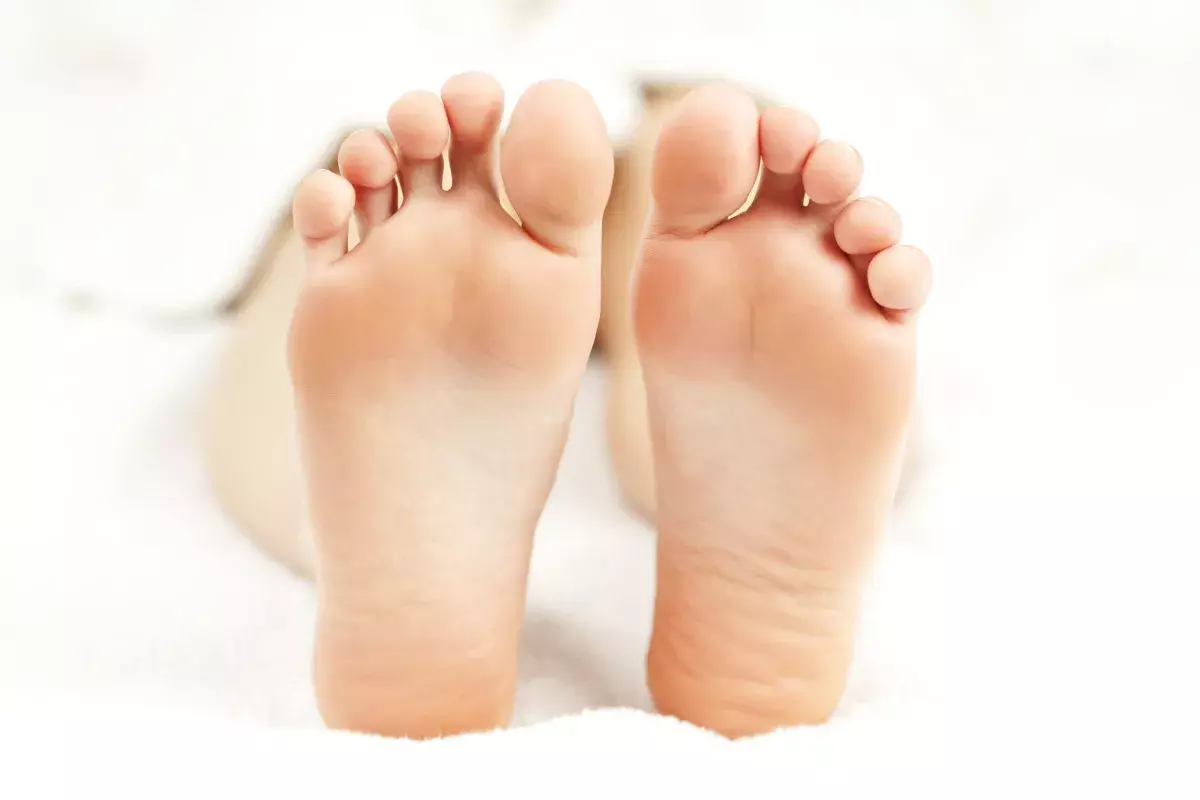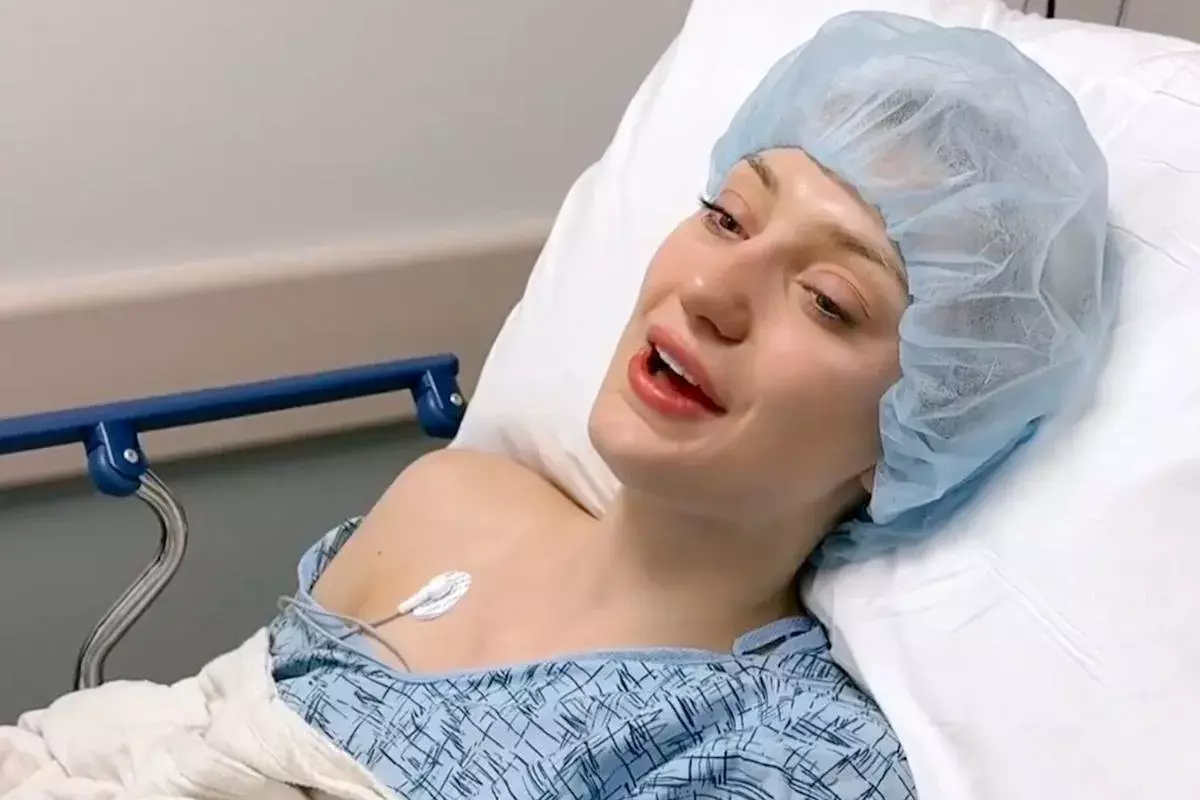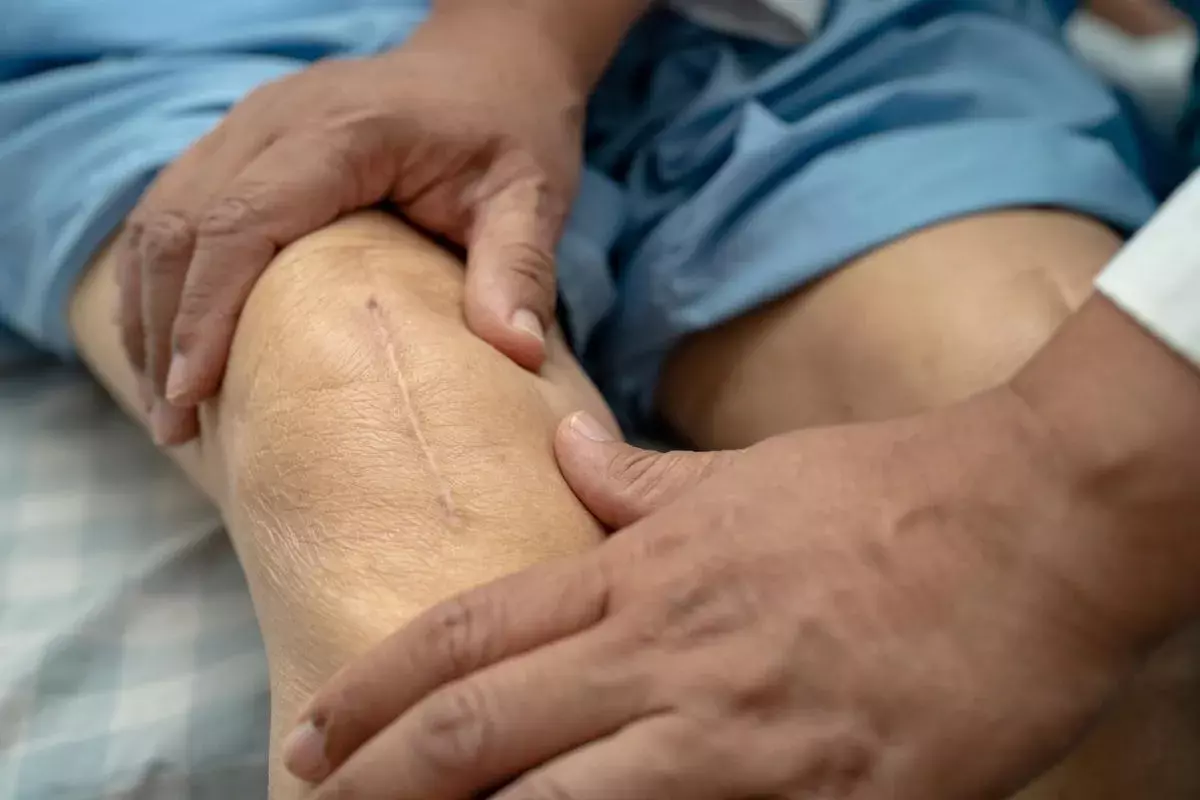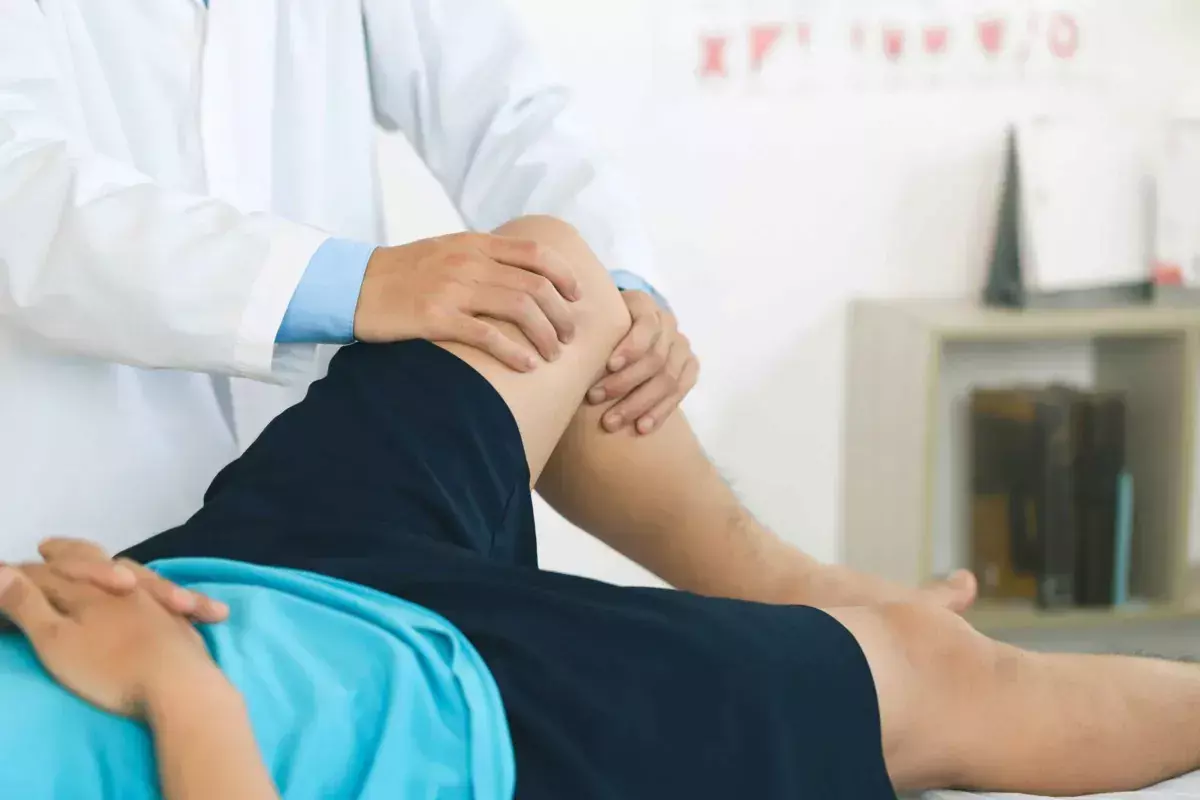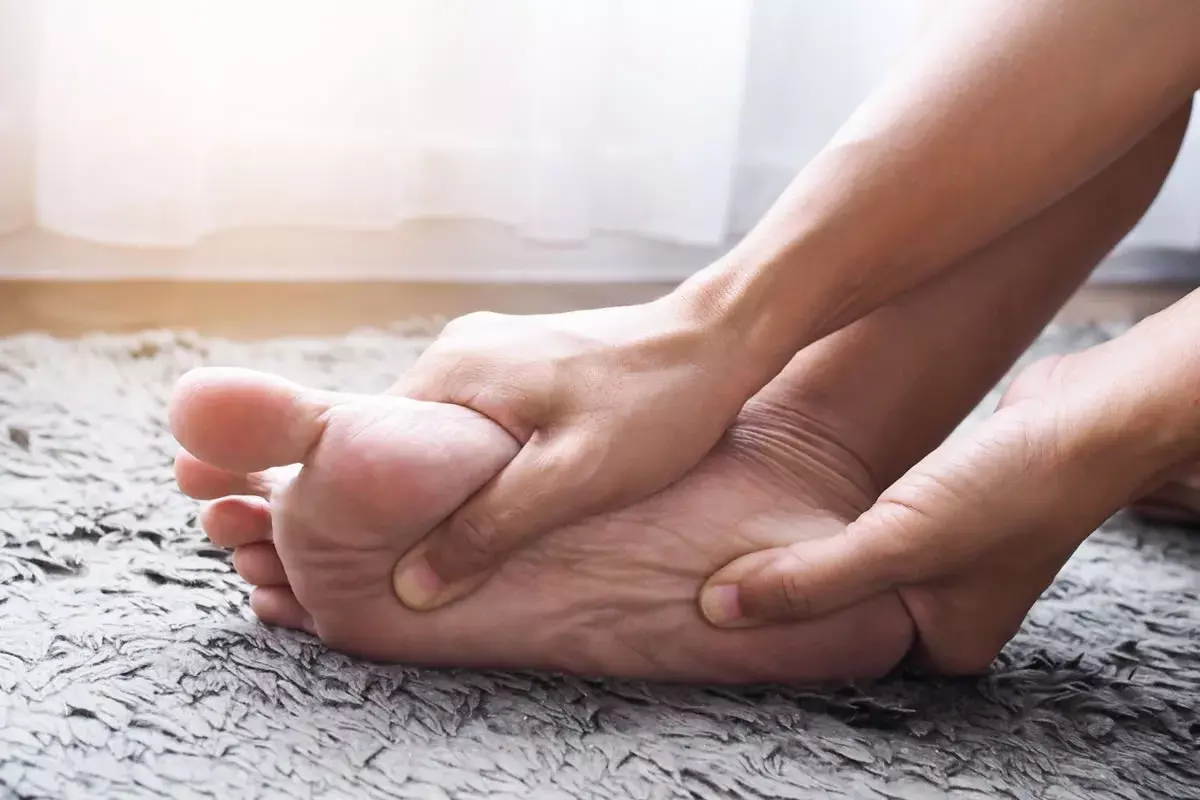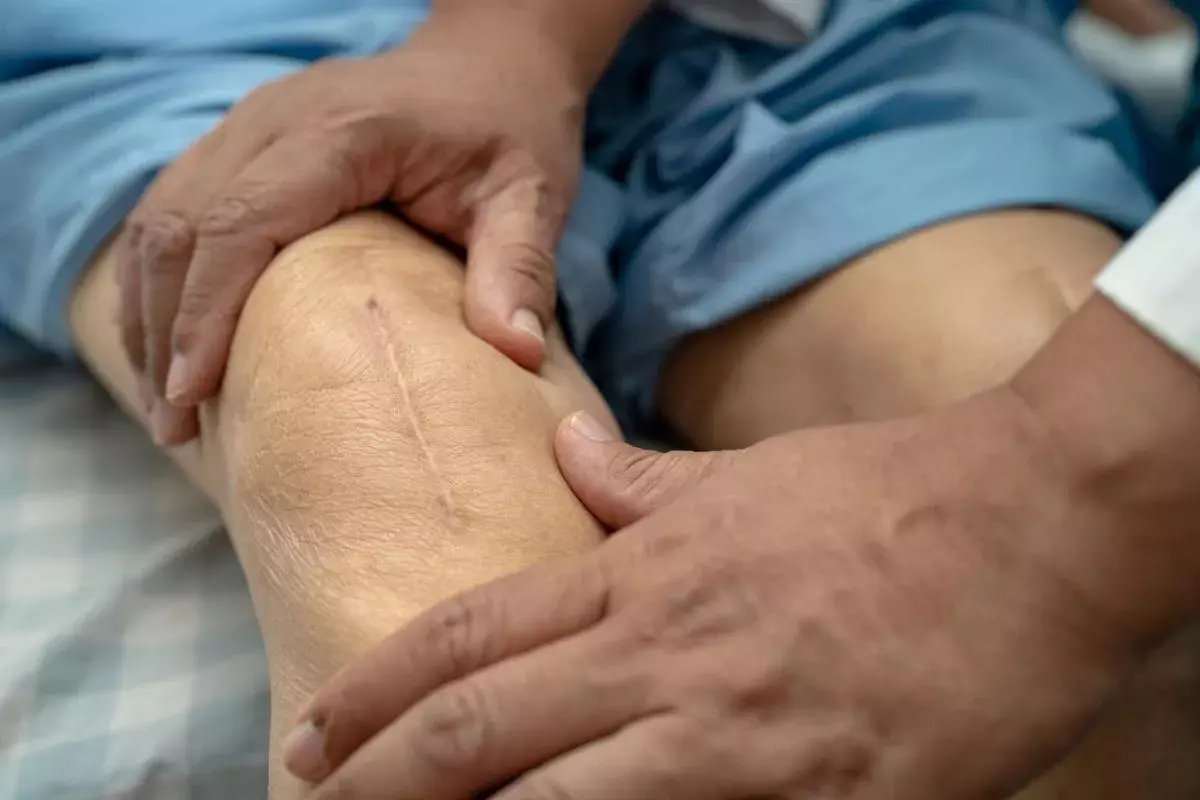Sleep apnea and ADHD are closely linked conditions that can affect focus, mood, and energy levels. Vyvanse is a drug mainly used for treating Attention Deficit Hyperactivity Disorder (ADHD). It has caught attention for its possible role in sleep issues.
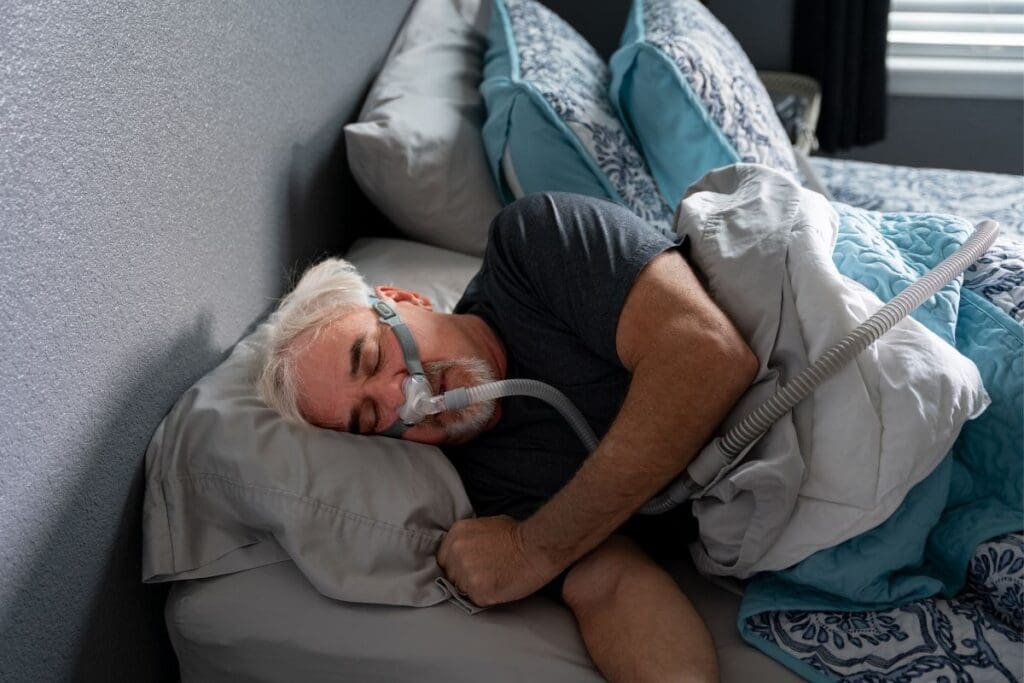
The link between ADHD and sleep problems like sleep apnea is complicated. Vyvanse isn’t approved for sleep apnea. Yet, its impact on ADHD symptoms has led to research on its sleep benefits.
It’s important to understand how ADHD and sleep apnea interact. This knowledge helps in creating better treatment plans.
Key Takeaways
- Vyvanse is mainly for ADHD and binge eating disorder.
- The connection between ADHD and sleep apnea is complex.
- Vyvanse is not approved for sleep apnea treatment.
- Research on Vyvanse’s effects on sleep fatigue is ongoing.
- Understanding the link between ADHD and sleep apnea is key to effective treatments.
Understanding Vyvanse and Its Primary Uses
Vyvanse is a drug mainly used for Attention Deficit Hyperactivity Disorder (ADHD). It has sparked interest in how it affects sleep. Its active ingredient, lisdexamfetamine, is a central nervous system stimulant.
What is Vyvanse (Lisdexamfetamine)?
Vyvanse is a prodrug that turns into d-amphetamine in the body. This change is important for its effects.
FDA-Approved Uses for Vyvanse
The FDA has approved Vyvanse for ADHD and binge eating disorder. It’s known to help manage ADHD symptoms well.
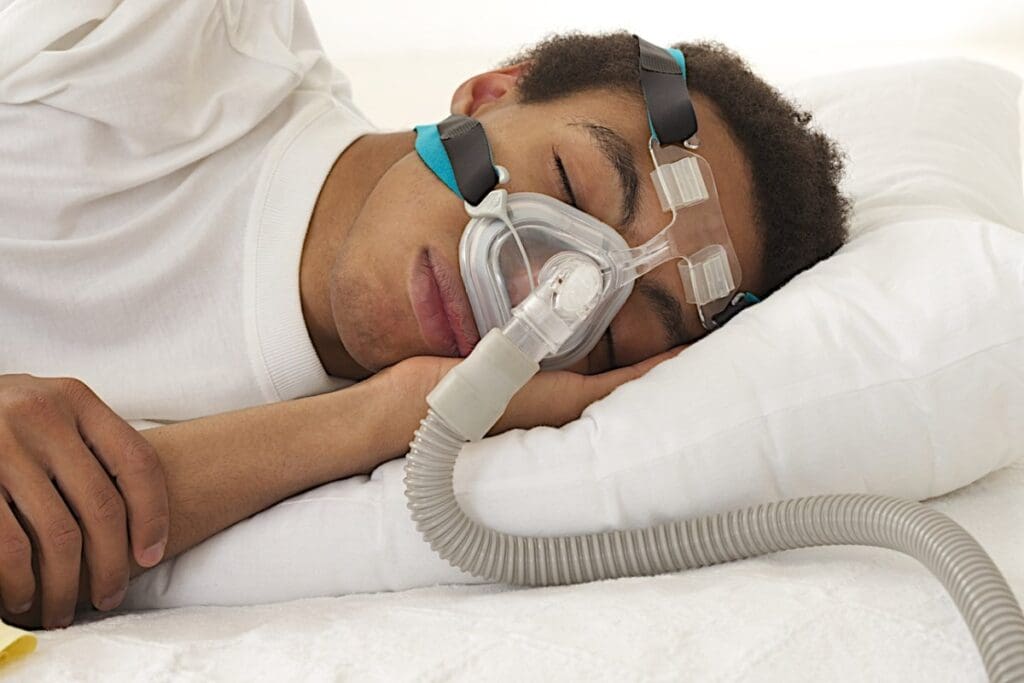
Mechanism of Action as a Stimulant
Vyvanse boosts certain brain chemicals like dopamine and norepinephrine. This helps patients with ADHD focus better and control impulsiveness and hyperactivity.
“The exact way Vyvanse works is not fully known,” says research. “But changing neurotransmitter levels is key to its success,” they add.
Sleep Apnea: Causes, Symptoms, and Diagnosis
Sleep apnea is when breathing stops during sleep. It’s important to know its causes and symptoms. We also need to understand how it’s diagnosed.
Obstructive vs. Central Sleep Apnea
There are two main types of sleep apnea: obstructive and central. Obstructive sleep apnea happens when the airway is blocked. Central sleep apnea is when the brain doesn’t tell the breathing muscles to work. OSA is more common and linked to obesity and age.
Common Symptoms and Warning Signs
Symptoms include loud snoring and stopped breathing during sleep. Waking up with a dry mouth or headache is also common. Daytime fatigue, trouble focusing, and feeling irritable are other signs. ADHD can make these symptoms worse because of sleep problems.
Diagnostic Methods and Testing
To diagnose, a sleep study, or polysomnography, is used. It records what happens while you sleep. Home sleep tests are also used for a first check. Treatment depends on how severe and what type of sleep apnea you have.
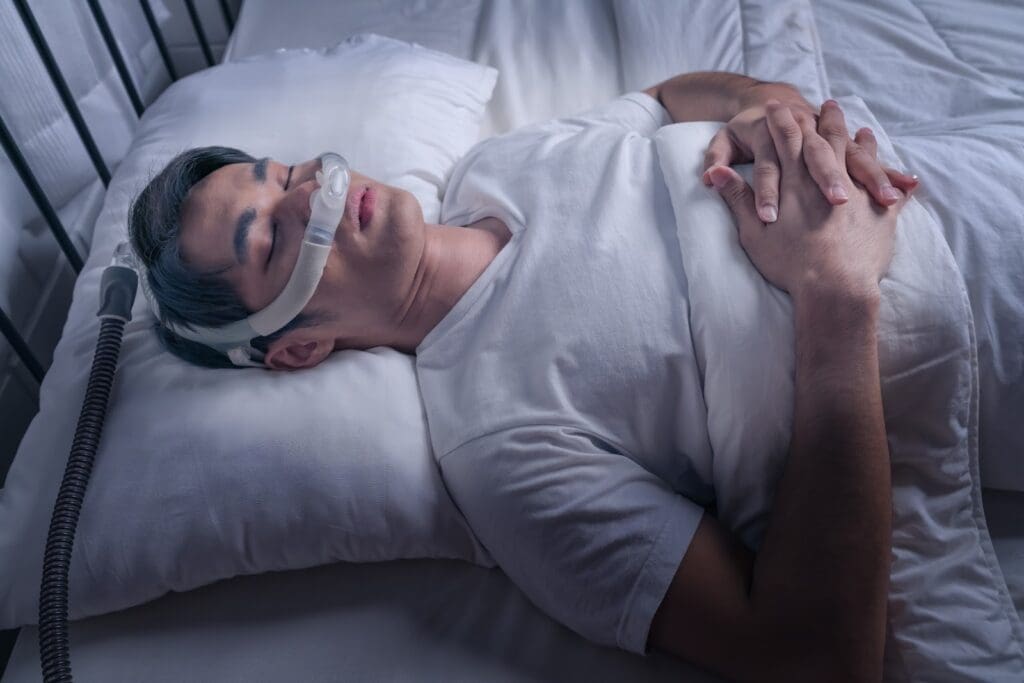
Knowing about sleep apnea is key, even more so for those with ADHD. Untreated sleep apnea can make ADHD symptoms worse. Vyvanse doesn’t fix the main problem of obstructive sleep apnea (OSA).
The Relationship Between Sleep Apnea and ADHD
It’s important to understand how sleep apnea and ADHD are connected. This connection is complex. Research shows they share symptoms and can be misdiagnosed.
Overlapping Symptoms and Misdiagnosis Risks
Sleep apnea and ADHD have similar symptoms. These include feeling very tired during the day, trouble focusing, and being easily irritated. This can lead to mistakes in diagnosis.
A detailed check-up is key to tell them apart.
“The mix of sleep disorders and ADHD shows we need a full approach to diagnosis,” a study says. This means checking sleep for ADHD patients.
Prevalence of Sleep Disorders in ADHD Patients
People with ADHD are more likely to have sleep problems, like sleep apnea. Studies show sleep disorders are more common in ADHD patients than in others.
- Sleep apnea is common in ADHD patients.
- Sleep issues can make ADHD symptoms worse.
- Managing sleep disorders is vital for ADHD treatment.
How Sleep Disruption Affects ADHD Symptoms
Sleep problems can make ADHD symptoms worse. Good sleep is key for focus and behaviour in ADHD patients.
Healthcare providers can create better treatment plans by understanding the link between sleep apnea and ADHD.
Current Research on Vyvanse for Sleep-Related Conditions
Vyvanse is being studied for its effects on sleep issues, like daytime sleepiness. It’s mainly used for ADHD. Researchers are looking into how it might help with sleep problems.
Studies on Excessive Daytime Sleepiness
Studies are looking at Vyvanse’s impact on daytime sleepiness. Some research suggests it might help with this issue. A study in the Sleep Medicine journal found it improved wakefulness in narcolepsy patients.
Case Series and Anecdotal Evidence
Case studies and personal stories also offer insights.
“The use of stimulants like Vyvanse may offer benefits for patients with sleep disorders, but careful consideration of individual patient factors is necessary.”
These stories show how different people react to Vyvanse. They point to the need for treatments tailored to each person.
Limitations of Existing Research
The research we have is limited. It’s based on small studies and personal accounts. More research is needed to understand Vyvanse’s effects on sleep. We need solid evidence to guide its use.
In summary, the research on Vyvanse for sleep issues is promising but needs more work. As we learn more, we’ll find better ways to help patients with ADHD and sleep problems.
Potential Risks of Using Vyvanse in Sleep Apnea Patients
Vyvanse is a medication for ADHD that might be risky for people with sleep apnea. ADHD and sleep disorders often go together. It’s hard to say if ADHD causes sleep problems or if something else does.
Insomnia and Sleep Architecture Disruption
One big risk of Vyvanse is insomnia. Studies show many patients on Vyvanse have trouble sleeping. This can make sleep apnea worse, leading to more daytime tiredness.
Cardiovascular Effects and Blood Pressure Concerns
Vyvanse can raise heart rate and blood pressure. This is a big worry for people with heart problems, which sleep apnea can cause. Vyvanse might make blood pressure go up, making sleep apnea worse.
Impact on Respiratory Function
Vyvanse might also affect breathing in sleep apnea patients. While we don’t know all the details, it could change how often sleep apnea happens. More research is needed to understand this.
In short, Vyvanse helps with ADHD but might not be safe for sleep apnea patients. It can cause insomnia, heart problems, and breathing issues. Doctors need to watch these patients closely and adjust their treatment if needed.
Evidence-Based Treatments for Sleep Apnea and ADHD
It’s key for doctors to know the best treatments for sleep apnea and ADHD. Both need a full plan to help patients get better.
First-Line Treatments for Sleep Apnea
For sleep apnea, doctors often suggest lifestyle changes, CPAP therapy, and dental devices. These methods aim to lessen sleep apnea symptoms.
- Lifestyle changes include losing weight, exercising, and not sleeping on your back.
- CPAP therapy keeps the airway open while you sleep.
- Dental devices help keep the airway open by adjusting the jaw’s position.
Stimulants like Vyvanse are not usually for sleep apnea. They’re more often used for ADHD.
Managing ADHD in Patients with Sleep Disorders
Handling ADHD in those with sleep issues needs a detailed plan. This includes:
- Behavioural therapies to manage ADHD symptoms.
- Medications like Vyvanse, approved for ADHD.
- Treating sleep disorders with the mentioned methods.
It’s important to watch how treatments for one condition impact the other. For example, knowing does sleep affects adhd helps in creating a better treatment plan.
Treating sleep apnea and ADHD together can improve health outcomes. By using proven treatments, doctors can help patients manage their symptoms better.
Conclusion: Clinical Considerations for Patients with Both Conditions
Patients with sleep apnea and ADHD need a detailed treatment plan. Studies show ADHD can lead to sleep issues, including sleep apnea. It’s important to understand how ADHD impacts sleep to manage these complex conditions well.
A team approach, like at LivHospital, is key to top-notch care. Recognizing the link between sleep apnea and ADHD helps doctors create effective treatments. These treatments address both conditions at once.
Healthcare experts can make a big difference by understanding the link between sleep apnea and ADHD. They should focus on accurate diagnosis, personalized treatment plans, and regular check-ups. This ensures both conditions are handled properly.
FAQ’s:
Does Vyvanse help with sleep apnea?
Vyvanse is not approved for treating sleep apnea. It’s mainly used for ADHD and binge eating disorder.
Can ADHD medications like Vyvanse affect sleep?
Yes, ADHD medications like Vyvanse can impact sleep. Some people might have trouble sleeping or experience disrupted sleep patterns.
Is there a link between ADHD and sleep apnea?
Yes, ADHD and sleep apnea have a complex relationship. They share symptoms, which can lead to misdiagnosis.
Can sleep apnea be treated with stimulants like Vyvanse?
No, treating sleep apnea usually involves lifestyle changes, CPAP, or dental devices. Stimulants like Vyvanse are not used.
How does sleep disruption affect ADHD symptoms?
Sleep disruption can worsen ADHD symptoms. It’s important to manage sleep disorders in ADHD patients.
Can ADHD cause sleep problems?
Yes, ADHD can lead to sleep issues, including insomnia and disrupted sleep patterns.
Does sleep apnea affect ADHD symptoms?
Yes, sleep apnea can impact ADHD symptoms. Treating sleep apnea is key to managing ADHD effectively.
Can Vyvanse cause sleeping problems?
Yes, Vyvanse can cause sleeping issues, including insomnia, in some patients.
Is it safe to use Vyvanse in patients with sleep apnea?
Using Vyvanse in patients with sleep apnea requires caution. There are risks, including cardiovascular effects and respiratory function.
How does Vyvanse affect sleep architecture?
Vyvanse can disrupt sleep architecture. This can lead to insomnia and other sleep-related problems in some patients.
REFERENCES:
- Healthline. (2022, February 7). Vyvanse: Common side effects and tips for managing. https://www.healthline.com/health/drugs/vyvanse-side-effects. This source discusses that Vyvanse can cause sleep problems like insomnia and nightmares, which may worsen sleep apnea-related symptoms. It advises taking Vyvanse earlier in the day and consulting a doctor if sleep issues arise.
- Adler, L. A., et al. (2009). Effect of lisdexamfetamine dimesylate on sleep in adults with ADHD: A randomized, double-blind, placebo-controlled trial. Journal of Clinical Psychiatry. https://pmc.ncbi.nlm.nih.gov/articles/PMC2732626/. This study found that while insomnia was reported among Vyvanse users, overall subjective and objective sleep measures did not significantly worsen compared to placebo.
- Giblin, J. M., et al. (2011). Effect of lisdexamfetamine dimesylate on sleep in children with ADHD: A pilot study. Journal of Attention Disorders. https://journals.sagepub.com/doi/abs/10.1177/1087054710371195. This pilot study showed that lisdexamfetamine did not significantly contribute to sleep disturbances in children with ADHD, though the sample size was small.



